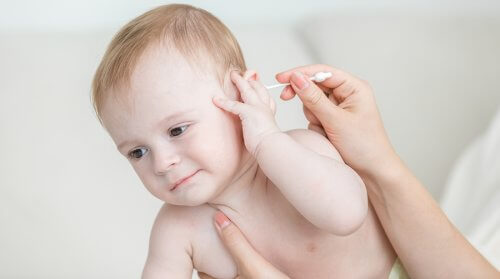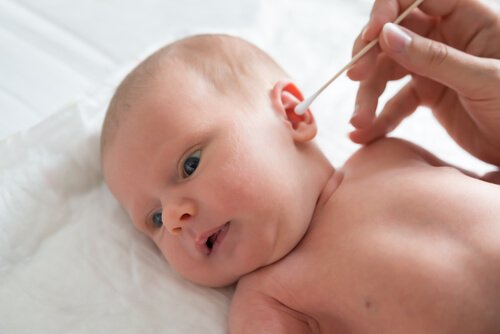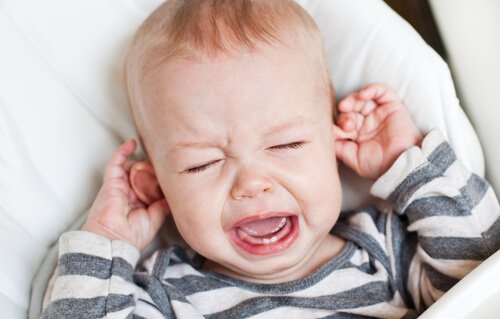Hearing Development in Babies: What You Should Know

Hearing allows babies to experience sensations with the world around them. The sounds of their parents’ voices and those of nature connect them with their surroundings. As a result, there are a number of things that encourage their hearing development.
Long before birth, babies can detect and respond to sounds from inside the womb. Babies can hear the heartbeat of their mother and her voice. They can also perceive musical melodies.
As babies grow, their interactions with the environment materialize more. They often divert their attention to any striking sound. Also, when they still can’t speak, they observe and listen to their elders with interest.
These are clear signs that a baby’s hearing is developing as it should. They gather a lot of information about their surroundings, so hearing is a fundamental factor in language development and brain stimulation. With that being said, if your baby suffers from a hearing problem, identify and treat it immediately.
The hearing development process in babies
As a parent, you should be attentive to the stages of your baby’s growth. In regards to hearing, record observations on their hearing development during each stage of their growth, using the following points as guidelines.

From 0 to 3 months, they are:
- Calmed and relaxed by soft and harmonic sounds.
- Aroused by loud noises or cries.
- Happy to hear their mother’s voice, which they recognize.
- Frightened by high magnitude sounds.
- Excited when they hear a pleasant sound and wave their arms.
Between 3 and 6 months, they:
- Follow up with new voices or sounds.
- Start observing people’s lips when being spoken to.
- Make responses to scolding or rules.
- Try making sounds by themselves.
- Imitate adults with vocalization.
From 6 to 10 months, they:
- Respond to hearing their name.
- React to stimuli when being called from a specific place.
- Follow and observe books or images that are shown to them.
- Babble more regularly.
- Recognize the names of commonly used objects and understand frequent words like “mommy.”
Between 10 and 15 months, they:
- Begin to pronounce words instead of babbling.
- Understand instructions made only with gestures.
- Are entertained with games with clapping involved.
- Point and look at the people or things they want to reach.
Parent follow-up
Even if we can’t exactly define how our children’s hearing develops, since each child is unique, we should be aware of the process. Their language development depends on it.
If time passes and your baby doesn’t learn new words or babble, you should resort to medical tests, such as audiometry, to identify potential hearing problems. If diagnosed in time, those problems can be corrected and hearing aids can be implemented if necessary.

To avoid hearing ailments, babies should be protected from loud and prolonged sounds. Also, if your baby scratches his or her ears frequently, that could be the sign of a serious ear infection. Never put cotton swabs or other objects inside your baby’s ear canal, as that greatly increases the risk of eardrum injury.
Likewise, you can help develop your baby’s auditory sense with exposure to new sounds via listening to music, reading a book, or talking. These activities not only stimulate babies’ hearing, but they also learn new words that will be very useful when they start talking.
On the other hand, describing objects and daily actions, enunciating colors and the baby’s name, and explaining the origin of noises helps babies understand the environment that surrounds them.
In conclusion, the correct development of babies’ hearing plays an important role in their day-to-day lives and guarantees less difficulties in the future. Even though some hearing problems are impossible to prevent, you should be attentive and attempt to correct as many problems as possible when diagnosed.
All cited sources were thoroughly reviewed by our team to ensure their quality, reliability, currency, and validity. The bibliography of this article was considered reliable and of academic or scientific accuracy.
- Etapas del desarrollo del habla y el lenguaje. National Institute on Deafness and Other Communication Disorders.
- Moreno Sala, Maria Teresa (Maite. (2019). El desarrollo del oído absoluto durante la infancia.
- La audición de los niños. Guía para padres. Phonak. [Online].